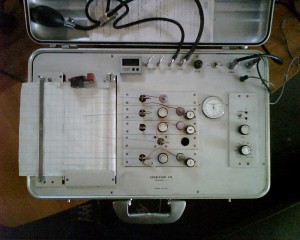Supreme Court Appealed to Invalidate Polygraph Testing for Parolees

Polygraph results may be unreasonable due to the frequency of changing a parolee’s status and also the implicit trust given to the machines.
By Trevor Armstrong, Marketing —
New Jersey parolees are turning to the Supreme Court in hopes of overturning a local court ruling allowing paroled sex offenders to be monitored through polygraph testing. The decision published in J.B v. New Jersey State Parole Board defends the New Jersey State Parole Board in its use of polygraph testing. Dissatisfied with the ruling, the parolees filed a petition for certification to the Supreme Court on January 27th. What happens at the Supreme Court level remains to be seen.
Polygraph Accuracy?
Though the New Jersey appeals court did not invalidate the polygraph testing as requested, it did decide to impose some restrictions due to concerns regarding the accuracy of polygraph testing. These concerns in part stem from the issue that while verbal admissions made by a parolee may count against him or her in court, the machine-generated readouts by the polygraph device itself do not.
Yet the resolutions of the court did not go far enough to please the parolees. The plaintiffs representing the parolees argue that there is no reasonable basis for polygraph tests because restrictions placed on the parolees changed 42 percent of the time after being tested. This suggests that the polygraph results may be unreasonable due to the frequency of changing a parolee’s status and also the implicit trust given to the machines.
The court’s findings showed that parolees’ substantive responses were regularly used as a basis for determining restrictions and terms of release. The judges also concluded that there were no constitutional or legal prohibitions regarding the use of polygraph testing to assist in determining a parolee’s status.
Reliability of Lie Detection Testing
What will happen in the Supreme Court is unknown, but it is evident that the reliability of polygraph testing will continue to be challenged. A Supreme Court decision on polygraph testing could affect many government agencies that use it for purposes including the regulation of parolees and the screening of applicants for government jobs. A Supreme Court decision will not affect non-government employers because the Employee Polygraph Protection Act of 1988 already prohibits them from using polygraphs to screen or monitor employees.
Because of the complexity of polygraph testing and doubts about its reliability, the emerging company Converus proposes a more objective solution. It has developed a new kind of test for lie detection patented under the name EyeDetect. This non-invasive technology uses infrared sensing to detect dilation in a person’s pupils. This allows EyeDetect to accurately determine whether or not a person is lying. Unlike a polygraph, the technology uses an algorithm rather than a trained examiner to determine if a person is lying. This makes the results much more consistent and unbiased. If adopted, EyeDetect technology could advance the field of lie detection significantly.
Source
Photo courtesy of SpiralStares. (No changes made)

